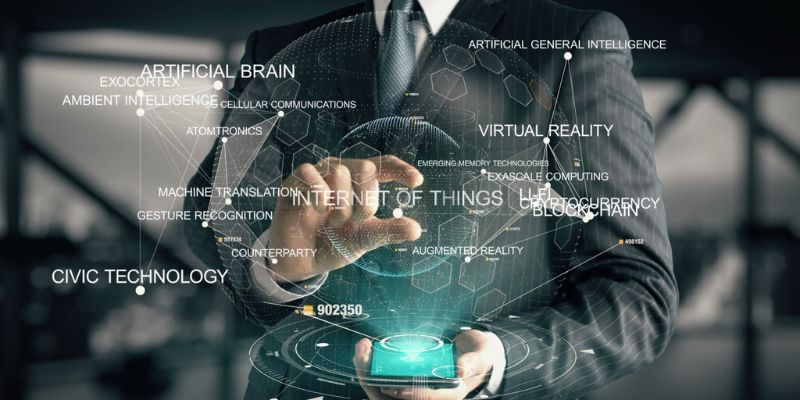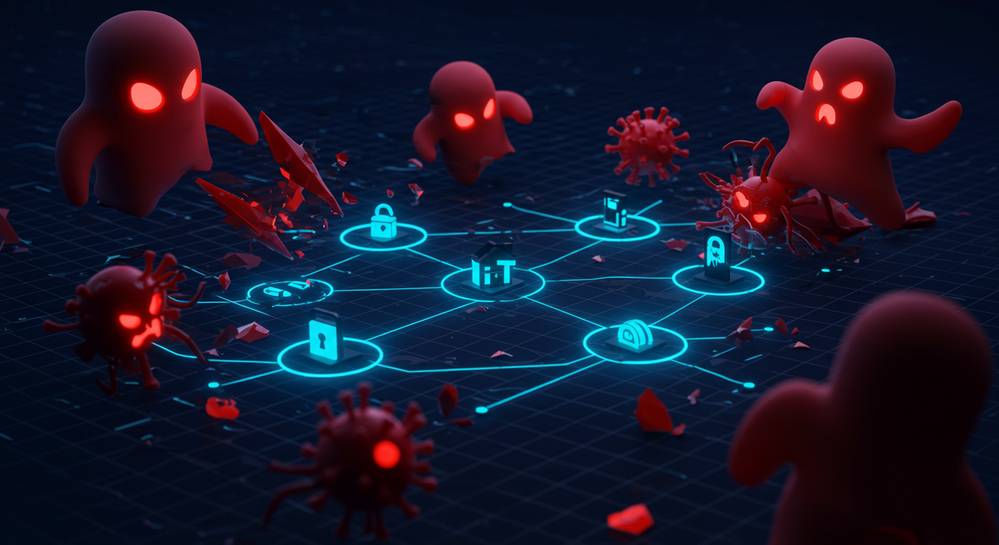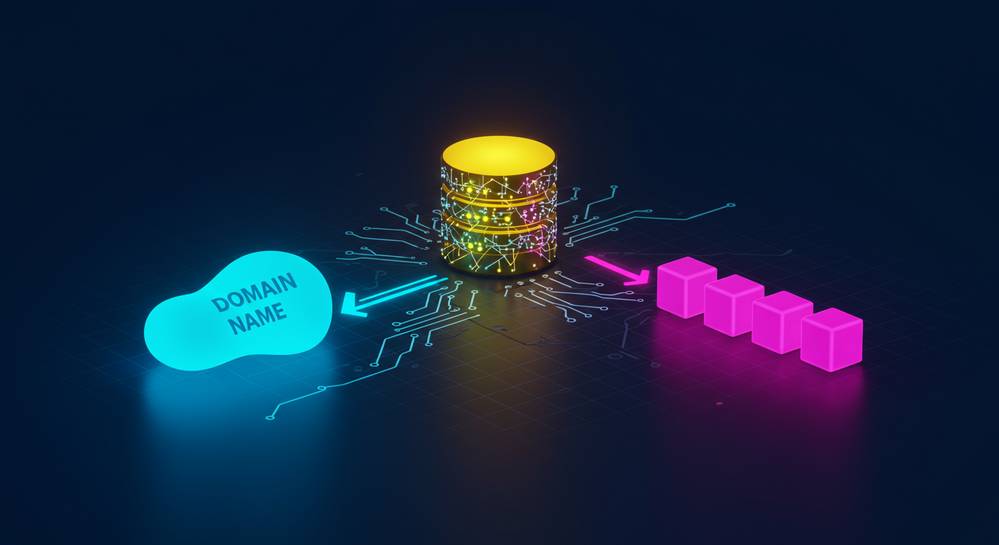How the internet has changed our lives is no simple tale. It has flipped the world upside down, shaking the very roots of how we connect, work, and learn. Gone are the days when waiting by the phone for a call was the norm. Today, we live in a universe of endless connectivity – messages zip across the globe in a heartbeat. I’ve seen families stay close across continents, friends reuniting after decades, and businesses booming without brick-and-mortar bounds.
In the chapters to follow, you’ll dive into this digital transformation that’s redefining communication, reimagining workplaces, and reshaping education. And we don’t stop there; we’ll explore the massive economic and social shifts this tech tornado has triggered. So buckle up — it’s quite the journey.
Transforming Communication and Relationships Through the Internet
The Evolution of Online Communication
Once, we sent letters; they took days to reach. Now, click “send,” and off your message goes. Instantly, it lands in someone’s inbox miles away. That’s the impact of digital connectivity. Online communication has changed how we talk and share news. Messages zip across the globe in seconds. Friends and family connect in ways unimaginable before the internet.
Email was just the start. Now we have social media, video calls, and chat apps. They let us share life’s moments as they happen. Even in business, face-to-face meetings have given way to virtual ones. We use screens to connect, work, and play.
Let’s dig deeper. Why is this shift big news? For one, digital literacy importance has skyrocketed. Knowing how to send an email or make a video call is vital now. It’s like knowing how to cook or swim – essential skills for life. And if you look at kids today, they’re growing up fluent in this digital language.
Navigating the Complex Web of Virtual Relationships
Relationships have taken on a new form too, thanks to the internet. We call them virtual relationships. Friendships and even love can blossom online. Some say it’s not the same. But for many, these bonds are just as strong.
How do we make and keep friends online? It starts with a message or a shared interest. Over time, you chat more, learn about each other, and trust grows. You might never meet in person, but the connection is real.
Social media effects play a big role here. Your likes, comments, and shares? They create a digital trail of interactions. Sometimes, strong friendships form from these tiny steps.
And the same goes for finding love. Many couples now say they met online. They might match on a dating app, then chat, then finally meet. Some say they know each other better that way. They spend time talking and learning about each other. They focus on what’s said, not just what’s seen.
Is it all good news? Not always. With more time online, privacy concerns grow. We must think about who sees what we share. Is our data safe? What about our chats and photos? Cybersecurity is No. 1 now. It keeps our online selves secure just like locks do for our homes.
But there’s hope. Experts work hard to keep us safe. They build stronger firewalls and teach us safe online habits. It’s a group effort to protect what matters to us.
In our web of connections, digital content creation rules. Many of us are creators now, not just consumers. We make videos, write blogs, and share our world. User-generated media adds spice to our online communities.
So, there you have it. The internet’s changed how we talk, meet, and live. It’s not just tech we use. It’s part of who we are. We’re citizens of a digital world, exploring this vast space of endless connectivity together.

Reshaping the Workplace: Telecommuting and the Surge of Remote Work
The Benefits and Growth of Telecommuting
We’ve seen jobs shift from offices to homes. This change is huge. Telecommuting means working from afar. It’s broken down traditional office walls. Many praise its perks. Think about it – no commutes. This saves time and money. And for companies? They spend less on office space. It’s a win-win.
Remote work has soared lately. Tech advances and faster internet speeds made it possible. Now, folks can work from anywhere at any time. This flexibility is gold for work-life balance. Parents can see their kids more. And people can travel while they keep their jobs. Is it any shock that remote gigs grew fast? Not really.
The Psychological Impact of Remote Work on Employees
But let’s not forget how this all feels. Working alone can get lonely. No more water cooler chats. Some miss the office camaraderie. It’s tough to separate work from home life too. When does the workday end if your office is your living room?
There’s good stuff, too. People feel more in control. They set their own schedules. They choose work spots that fit their style. Some love the quiet of a home office. Others like buzzing cafes. Either way, they’re in charge.
This control can boost happiness and job fulfillment. Working in comfort can make for better output, too. So businesses get quality work while folks enjoy their day more.
But it’s not all perfect – clear boundaries are key. Work can eat into family time if you’re not careful. It’s important to shut off and shut down at the end of the day.
The big takeaway? Remote work is a huge shift in how we earn our bread. It brings freedom we’ve never had before. But it comes with challenges we need to handle smartly. It’s all about finding the right balance.

Education Goes Digital: E-Learning and the Internet
The Democratization of Education via E-Learning Platforms
E-learning puts education in many hands. It breaks down old school walls. People from all over can now learn online. They just need an internet link. The knowledge is the same as in top schools. This way, everyone gets a fair chance to learn.
What’s more? Cost doesn’t block learners. Online courses are often less pricey than traditional schools. So, folks save money and still get smart. They also learn skills that matter today.
The Role of Digital Literacy in Navigating Online Courses
Kids and adults must understand the web to learn online. That’s digital literacy. It’s knowing how to use computers and the net. It’s about finding and judging internet info too. Why? Well, to use e-learning platforms well, you have to handle videos, tasks, and tests on the web. You need to research online. Plus, share ideas with classmates in virtual spaces.
Without this know-how, the web is like a maze. But with it, the door to endless knowledge opens. It matters a lot for work too. Today’s jobs change fast. Often, they use new tech. Knowing your way around digital tools helps you keep up.
We’re just starting to see how the internet can teach us. We are joining a new world where learning never ends. It’s exciting and big. Let’s dive in and make the most of it!

Economic and Social Paradigm Shifts in the Digital Age
Analyzing Online Shopping Trends and E-Commerce Influence
The way we buy things has changed big time. Thanks to the internet, striking the checkout key is the new norm. E-commerce has made shopping easy and quick. You can find and buy stuff from all over the world, without leaving your house. No more lines or closed signs. Online shops never sleep.
Online shopping trends keep moving up. More people shop online now than before. They buy clothes, gadgets, even food with a simple click. Big holidays like Black Friday see huge online sales. Companies big and small have websites to sell stuff. Some sell only online.
This move to online buying keeps the digital economy juiced up. Each item we buy with a tap helps it grow. The internet made a new world of selling and buying. It’s a place where anyone with a gadget can start selling. And the way we think about money and jobs is shifting because of it.
The Intersection of Social Media, Privacy, and Cybersecurity
Social media has us hooked. It lets us chat, share pics, and make friends worldwide. Yet, it puts our private info at risk. Bad guys on the internet, known as hackers, can steal this info. That’s why cybersecurity is a big deal.
But why care about online privacy? Think of it like this. Would you want all your secrets out for anyone to see? No way! Privacy in the internet age keeps your secrets safe. No one can use them to do harm.
Safety online takes work. You lock your doors at home, right? You should lock up your online life too. Use strong passwords. Don’t share too much. Be careful who you trust. Websites should keep your data safe. But you’ve got to be smart too.
Cybersecurity works to protect us. It helps keep our chats, money, and secrets away from hackers. We need smart people and smart tools to fight the bad stuff. And being wise about sharing in social media is part one of staying safe.
Social networks are good and fun. But, just like real life, being safe is key. Remember, when online, think before you click.
The digital shift affects how we live and work. It’s cool and scary, all at once. New tech offers help but asks for care. We must keep up with it, to stay safe and tap into its power. So let’s dive into the digital wave, with our eyes wide open.
In this post, we dove deep into how the internet has changed how we talk, work, learn, and shop. We started by looking at how online chats have grown and how tricky it can be to keep up with friends we make on the web. Then, we talked about how more folks are skipping the office and what that means for how we feel. Next, we explored how learning has leapt onto the net, making it easier for many to learn anything, anywhere. We also need to know how to sift through all the info online. Finally, we peeked at how buying things has moved online and why we must think about who can see what we do on the net.
My last thought: The internet is a powerful tool that keeps shaping our world. We must learn to use it well and understand how it affects our everyday lives. Staying smart online will help us all do better in this digital world. Now, go use the web to your advantage and stay safe out there!
Q&A :
How has the internet significantly altered daily life?
The internet has revolutionized daily life by providing instant access to information, simplifying communication through email and instant messaging, and enabling e-commerce, which allows for online shopping and banking. It’s also a platform for entertainment, education, and social networking, impacting work, learning, and personal connections globally.
In what ways has the internet impacted communication practices?
The internet has transformed communication by making it faster, cheaper, and more accessible. Through social media, video calls, and chat apps, people can stay connected regardless of physical distance. The internet has also enabled new forms of media and journalism, reshaping how we share and consume news.
What are the key changes in education due to the internet?
Education has been profoundly affected by the internet, facilitating online learning platforms, virtual classrooms, and access to vast resources for research and learning. Distance learning has become more viable, and educational materials are more diverse and available, democratizing education beyond traditional classroom walls.
How has the internet influenced the business world?
The internet has had a major impact on the business world by opening up global markets, allowing for remote work, and increasing productivity through various online tools. E-commerce has surged, changing retail landscapes and customer behavior, while digital marketing has become essential for business visibility and growth.
What are some negative effects of the internet on society?
Despite its benefits, the internet has also had negative effects on society, including privacy concerns, internet addiction, cyberbullying, and the spread of misinformation. Furthermore, it has contributed to shorter attention spans and could potentially widen the digital divide between those with and without internet access.



